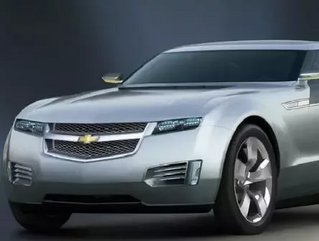Lithium Batteries Causing Cars to Catch Fire?

If you’re thinking of buying a Chevrolet Volt or electric car in the near future, you might want to wait until the National Highway Traffic Safety Administration figures out why a Volt test vehicle caught fire while parked in the testing center.
The plug-in electric Volt had been crash-tested three weeks earlier before it spontaneously caught on fire May 12th in a Wisconsin facility. The crash test involved a 20 mph side-impact test which punctured the Volt's lithium-ion battery pack.
The reason for the fire has not yet been determined by the NHTSA although the punctured lithium-ion battery is being considered.
In follow-up tests, both General Motors and NHTSA were unable to repeat the fire. So far, neither the NHTSA or GM have received any complaints or reports of other Volts catching fire.
So why are you hearing about it now? The NHTSA is investigating the safety of lithium batteries (the Volt houses a 400-pound lithium ion battery pack) which powers electric cars and could have been the cause of the car fire. Additional electric car battery tests are being planned with Energy Department experts in the near future.
The NHTSA is also asking General Motors and other automakers for information on lithium-ion batteries. However, the NHTSA also said that it does not believe that electric cars are at greater risk for fire than those with gasoline-powered engines. Hm, somehow that does not make me feel safer.
General Motors believes the fire occurred because NHTSA did not drain the Volt's battery following the crash which is a safety step the automaker has recommended for first-responders, according to GM spokesman Rob Peterson. Additionally GM did not tell NHTSA of the safety practice.
GM said they were confident in the technology being released in current electric cars and the upcoming hybrid vehicles. However, it is notable that the Toyota Prius, which dominates the hybrid market, is powered by older nickel metal hydride battery technology.
"I want to make this very clear: The Volt is a safe car," Jim Federico, GM chief engineer for electric vehicles, said in a statement.
The South Korean battery maker LG Chem Ltd, which supplies the Volt battery cells, is also working with GM and the NHTSA on the investigation. These lithium-ion batteries have been used in consumer electronics safely but do have a tendency to overheat.
Now the NHTSA is considering requiring first-responders to drain electric vehicles' batteries after a crash.In addition, the agency is seeking the best process for accident responders to follow in electric vehicle accidents.
NHTSA is now reviewing automakers' responses. The official said it is too early to tell whether the agency will issue a rule on discharging batteries.
- Fortune shines a light on the companies ‘changing the world’Sustainability
- Five C-suite hires in North America you may have missedLeadership & Strategy
- General Motors new campaign to advance zero emissions futureLeadership & Strategy
- General Motors furthers its ‘all-electric future’ effortsSustainability






